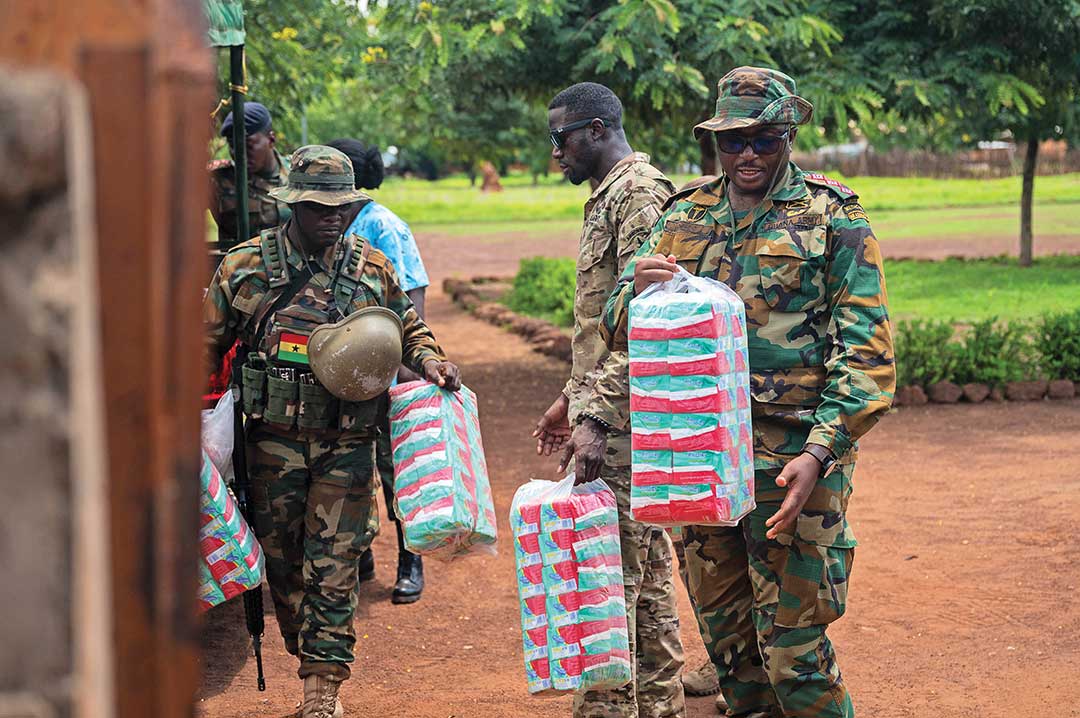U.S. Africa Command Staff
When civil-military relations are out of balance, an entire nation can slide into chaos.
In recent years there has been a spate of military coups in Africa. Burkina Faso, Gabon, Guinea, Mali, Niger and Sudan all experienced undemocratic transfers of power. The details are different in each country, but the pattern is the same. Coup leaders justify their actions by blaming ineffective, corrupt and authoritarian governments. Deposed civilian leaders point the finger at power-hungry soldiers. The coup leaves the nation less safe and diplomatically isolated.
Experts say coups are a symptom of wider dysfunction in the civil-military dynamic. When working properly, the relationship is a bargain among the citizens, their elected leaders and the armed forces. All have an important role to play, and all can benefit.
In effective militaries, service members are trained to be loyal to the constitution and remain apolitical. Subordinance to civilian authority is taught during basic training and reinforced throughout a service member’s career. Civilians, in turn, exercise oversight through mechanisms such as parliamentary committees, the judicial branch, civil society groups and the media.
Many African countries have made great strides in institutionalizing civil-military relations since the early years of independence, when military dictatorships were common. Countries are investing in professional military education. They are making sure the security sector works for the public through civilian-focused efforts such as disaster response, infrastructure construction and humanitarian projects. Regional organizations are working to solidify democratic norms and mediate in cases of civil-military disputes.
But there is much work to be done. There still are many instances of the military being politicized and acting outside of its constitutional duties. Soldiers, often frustrated by corruption or losses in the fight against violent extremism, see coups as a quick fix.
Putting this relationship back into balance is a whole-of-society task, but members of the armed forces remain the last line of defense. They must strengthen professionalism and accountability within their ranks and resist any temptation to take power at the point of a gun. When successful, the benefits will be felt for generations to come.


Comments are closed.